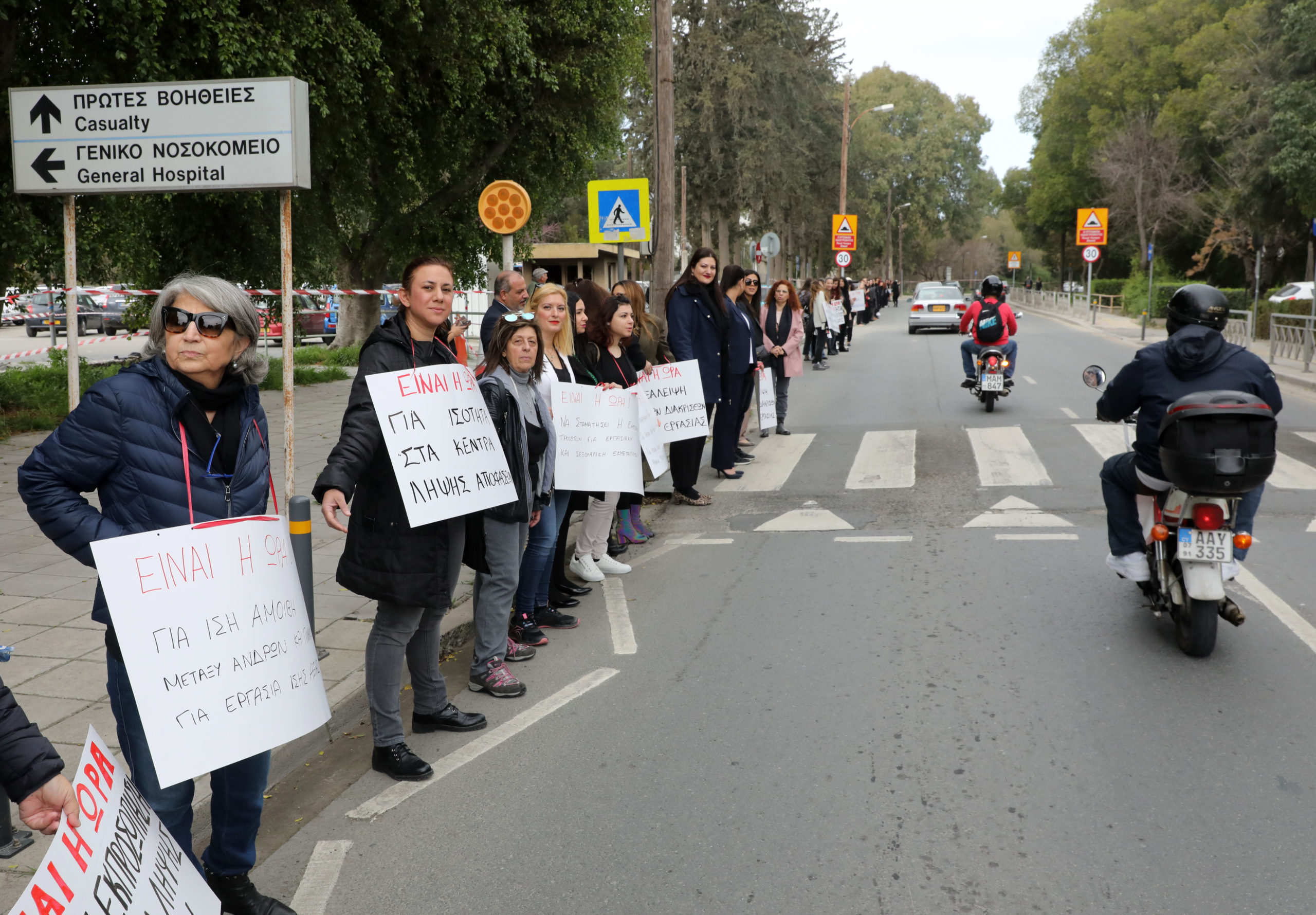It’s Women’s Day once again, when everybody hops on the equality bandwagon, adding a tag of their choosing to “gender-” to show the general public that they care about inequality issues.
President Anastasiades, not known for his encouragement of women in key administration positions, tried to justify the glaring absence of female ministers by saying this week that two of his 16-member cabinet were women.
Such comments were considered by rights’ organisations as being condescending and paternalistic.
The president said he intends to appoint more women to key positions ‘very soon’, which is not very convincing seeing that he’s already been in office for seven years, with several mini-reshuffles, but only two full cabinet members being women and one a junior minister.
However, Anastasiades seems to believe that it is difficult to find remarkable women to undertake decision-making positions, preferring instead to appoint female commissioners, many of whom deal with equality issues, but whose reports continue to be ignored by the male-dominated political elite.
Undoubtedly, the choice of Stella Kyriakides as the administration’s proposal for the European Commission could be seen as a plus in trying to close this gap.
The Cypriot health commissioner proving her might, and shining like a bright light in critical issues, such as the coronavirus crisis, where male politicians and state leaders have failed to deliver at a national level.
There is some truth, though, in that women are just as responsible for not electing other women in the first place.
In Cyprus, this is due to the issue of trust, where within society itself women do not trust other women, let alone feel proud of such female achievers rising the ladder of success, which more often results in a sense of jealousy.
Communist party of AKEL seems to be ahead of the rest when it comes to female candidates on electoral lists.
But this is still at an unsatisfactory level that would allow a larger number of women getting into parliament or on municipal councils.
Even female mayors are a rare breed nowadays with only a handful of names coming to mind in the past decade or so.
The police force clearly lacks female representation at decision making roles, even though there is officer material among many women.
It is an attitude problem that is gradually being remedied, alas too slowly.
The police chief (surrounded by male-only deputies) recently spoke of the need for 600 to 800 recruits to enhance the weakness of the police force at all levels.
If not from fresh female recruits, some of whom would be ideal candidates ‘promoted’ from the army, specialists could also be hired on a contractual basis, to fill the gaps that current male officers cannot fill.
But that is part of wider police reform, that clearly will not be implemented by this administration.
The argument should not be about quotas, but proper education.
This starts from the youngest age, where gender equality should be instilled in the minds of children at kindergarten, then elementary schools.
If this continues into secondary education, then there is a better chance of young females leading student bodies in universities and ultimately returning to seek a position in society and politics based on merit and not on quotas or being imposed upon.
However, when it comes to the gender pay gap, this is an issue that should make Cypriots feel proud as regards the public sector, as in the civil service there is no discrimination in reward of two government workers at the same service scale.
The disparity that exists is in the promotion of women, whose destiny lies in the hands of a male-dominated system, where the preference is often ‘guided’ by politicians and party leaders.
Perhaps toppling male party bosses would be the first step.
After all, male politicians are responsible for all the problems that Cyprus has faced since independence.
Could women have done better?










